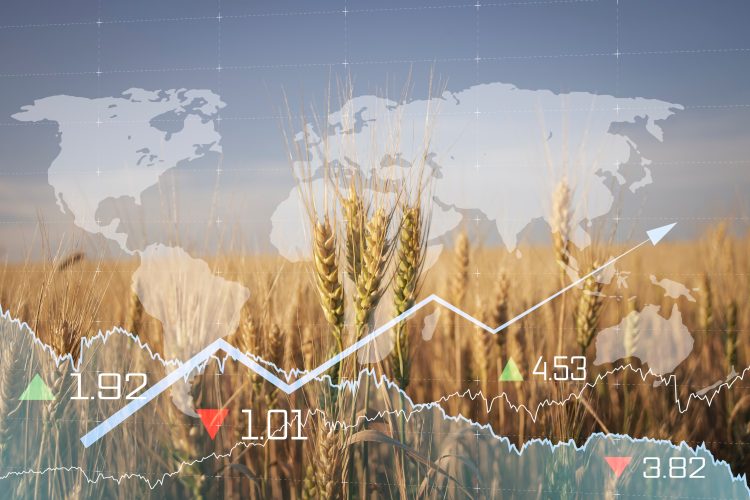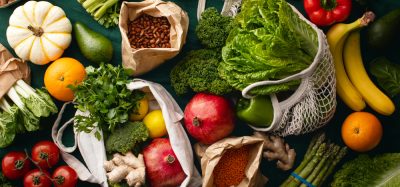Russia’s invasion of Ukraine key driver of food insecurity, says UK
- Like
- Digg
- Del
- Tumblr
- VKontakte
- Buffer
- Love This
- Odnoklassniki
- Meneame
- Blogger
- Amazon
- Yahoo Mail
- Gmail
- AOL
- Newsvine
- HackerNews
- Evernote
- MySpace
- Mail.ru
- Viadeo
- Line
- Comments
- Yummly
- SMS
- Viber
- Telegram
- Subscribe
- Skype
- Facebook Messenger
- Kakao
- LiveJournal
- Yammer
- Edgar
- Fintel
- Mix
- Instapaper
- Copy Link
Posted: 6 November 2023 | Grace Galler | No comments yet
Justin Addison, UK Delegation to the OSCE, has shared his belief that Russia’s attack on Ukraine is one of the main drivers of current food insecurity.


Earlier in 2023, New Food reported that Russia has chosen to withdraw from the Black Sea Grain Initiative, something that caused global wheat prices to surge and global food insecurity concerns to rise.
Now, Justin Addison, Second Secretary at the UK Delegation to the Organization for Security and Co-operation in Europe (OSCE) has shared his view that Russia’s decision to withdraw from the Black Sea Grain Initiative and systematic attacks on grain infrastructure has “worsened food insecurity”.
In Vienna, Addison told the OSCE’s Economic and Environmental Committee that the effects on global food supply of Russia’s invasion of Ukraine, along with climate change, conflict, and the long-term impacts of Covid-19, are “the main drivers of current food insecurity”.
“Russia’s decision to withdraw from the Black Sea Grain Initiative has reduced global grain supply at a critical time for vulnerable people around the world, and contributed to further market volatility,” said Addison.
“Russia has also systematically attacked Ukrainian civilian grain and port infrastructure, clearly intending to degrade Ukraine’s ability to export food to the world,” he continued.
In his speech, Addison shared that he believes “Russia’s actions will take time to remedy” and are something that have caused “long-standing damage to the Ukrainian agricultural sector, which has played such a pivotal part in global food supply”.
Hoping to provide a “reset moment” to address global food security, the UK is set to host a global food security summit on 20 November 2023, where governments, international organisations, scientists, NGOs and the private sector are set to gather to discuss what Addison has labelled as a “crisis”.
In Addison’s speech, shared by the UK Government, it was highlighted that the summit will put a spotlight on new approaches to “tackling deaths of children; building a climate-resilient and sustainable food system; supporting early action to prevent and reduce the impact of humanitarian crises; and using science and technology to boost food security”.
Addison went on to state that “while Russia seeks to destroy the trade links that provide the world with food, the development of the Middle Corridor offers a promising route for future trade and transport”. In particular, Addison noted that “the diversification and expansion of trade routes in Central Asian countries… not only brings economic growth to the wider OSCE region, but also has potential to improve global supply chains and energy security”.
In fact, Addison believes that through investing in infrastructure, there could be more scope to create industrial clusters and service clusters, something he thinks could lead to “new avenues for revenue and employment”.
Speaking on the need for support from governments across the world, Addison also highlighted that “The UK welcomes the strong political support from the Azerbaijani and Georgian governments, as well as coordination with Türkiye and countries in Central Asia and Eastern Europe”, however he noted that further expansion and operation of the Corridor “could create opportunities in the fields of port operations, logistics, rule standardisation and insurance”.
To conclude his speech, Addison addressed the UK’s commitment to standing by to offer political support, encourage investment and explore ways for British exporters to use the Corridor, wherever [it] can.”
Amid mounting apprehensions over the repercussions of Russia’s departure from the Black Sea Grain Initiative on the stability of global food security, Addison’s viewpoint underscores that Russia’s actions have impacted market volatility and led to a reduction in the global grain supply. However, as concrete plans for a global food security summit take shape, there emerges a ray of hope that promises to provide leaders with a platform to deliberate and devise innovative strategies for tackling the pressing challenge of food insecurity.
Related topics
Food Security, Regulation & Legislation, Supply chain, Trade & Economy, World Food
Related organisations
Organization for Security and Co-operation in Europe (OSCE), UK Government









